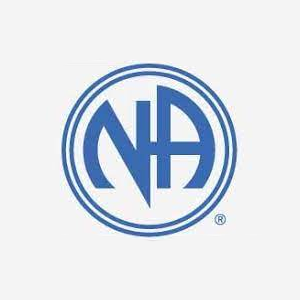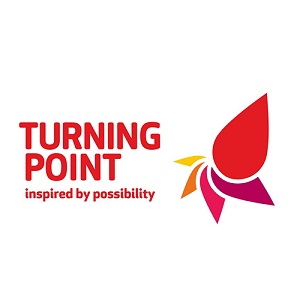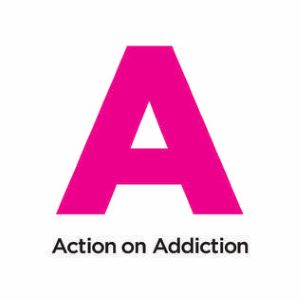Drug & Alcohol Rehab in Salisbury

How Does Rehab Work?
Rehabilitation is a process that helps individuals in working towards restoring balance and mental health. Rehab is designed for addressing the patient holistically with individual therapy aimed at addressing addictive behaviours. With the guidance of a professional therapist or counsellor, coping strategies are taught and individuals can access much-needed support. Strategies focus on relapse prevention and clients can be assigned to an extended inpatient programme or move to an outpatient programme. With inpatient rehab (residential rehab), individuals will reside at the rehab centre for the duration of treatment. Outpatient services are an alternative option in which clients will attend daily/weekly sessions for therapy but will not attend a full-time programme. There are both free and paid outpatient services available within the UK.
What Happens During Residential Rehab?
The choice to search for rehab for drug and alcohol addiction is really a brave one and will be supported with individualised rehabilitation services. We provide a breakdown of what you can expect from the process of drug and alcohol rehabilitation.
Rehabilitation starts with an assessment completed by an experienced medical professional. The goal is to investigate your history of substance use, and whether pre-existing medical conditions are present. This includes any comorbidities such as mental health disorders that require specialised treatment.
Detox is an essential part of a recovery programme. It involves the safe removal of drugs and/or alcohol from the body. When detox is done under medical intervention, withdrawal symptoms can be controlled, and their severity managed. This can significantly improve the odds of success and minimise relapse.
Therapy is an important part of the rehab process and every aspect of treatment must be tailored to address individual backgrounds, substance dependencies, and circumstances. Interventions can range from private counselling and cognitive behavioural therapy to developing coping mechanisms, skills, and attending group meetings.
1. Assessment

Before treatment can be delivered, a health assessment is conducted. This involves an in-depth look at individual medical history, drug or alcohol use, and the presence of mental health issues. Clients can be accommodated with a medical assessment by phone. The admissions staff team will be responsible for the telephone assessment to decide on the best form of therapy for your needs. Along with determining a treatment plan, the admissions team or medical professional will have accurate information to facilitate the detoxification.
To help you or someone you know, receive the best possible therapy for addiction and substance use, it is important to receive an individual assessment by a dedicated professional. The assessment will assist the direction of therapy including treatment for those with comorbid illnesses such as anxiety.
2. Detox

Detox will be completed prior to therapy. It is often performed in a private clinic where individuals can receive round-the-clock care to reduce withdrawal symptoms.
Medical detox is often recommended because it allows medical staff to oversee withdrawal symptoms. Withdrawal from substances can be uncomfortable and relapse may occur if not managed within a treatment centre facility. Medically assisted detox can ease the process by supporting clients and providing medical treatment to reduce uncomfortable symptoms. During an individual assessment, a professional will determine which approach is best suited to a comfortable detox and entry into treatment thereafter.
3. Therapy

Therapy involves skill-building, coping strategies, and identifying the reasons behind addictive behaviours. It can be provided in an inpatient or an outpatient programme, each offering its benefit and potential drawbacks.
Step by Step Process for Residential Rehab
To understand your medical and mental health history.
Arrange a suitable date to begin your journey to recovery.
Begin the managed withdrawal process from substances including alcohol.
To understand the root cause of addiction and how to overcome it.
Aftercare is provided to help manage the risk of relapse.
To help heal the wounds that addictive behaviour has caused others.
Find your Nearest Rehab Centre near Salisbury
The nearest rehab centre is Clouds House.
Address: Clouds House, East Knoyle, Salisbury, Wiltshire, Salisbury SP3 6BE, United Kingdom
Call 0333 4444 432 to discuss your alcohol or drug rehab requirements and any other questions you may have about the process of residential rehab.
Outpatient Addiction Services in Salisbury
From inpatient to outpatient services, the necessary treatment for substance addiction will depend upon the assessment and budget to determine the appropriate treatment for you. For those who are interested in the flexibility and the affordability of outpatient addiction services, we look closer at what it entails compared with an inpatient programme.
An outpatient programme does not require individuals to stay at the residence for treatment. If you have work, family, or other lifestyle commitments, outpatient services allow you to focus on these commitments while visiting a facility or counsellor to receive addiction counselling and other support services.
Once you have made a decision that outpatient treatment is an option you wish to pursue, the next step is to find a complementary programme provided by a CQC registered company or charity.
The Benefits of Outpatient Services
Private outpatient plans are tailored to the individual’s needs. The purpose is to provide optimal standards of support and intervention for recovery from addiction. – Outpatient care is considered flexible because individuals with family/work commitments can continue to manage these areas of life while attending weekly or twice-weekly counselling sessions. – It is also less expensive compared to residential treatment services.
The Challenges of Outpatient Services
Outpatient programmes will always have a crucial place in rehabilitation but for drug and alcohol dependence, staying in the same environment with access to triggers and the usual social circles can risk relapse. Furthermore, free outpatient services provided by the NHS or UK based charities do not provide the same tailored programme that private outpatient services provide, and there is typically a waiting list before you can be accepted for treatment.

How Much Does Rehab Services Cost in Salisbury?
Alcohol and drug addiction treatment within a residential facility can cost between £1500 – £4000 a week. Residential rehab is one of the more expensive forms of treatment for drug and alcohol addiction. For free and cost-effective services, charity organisations and government funded services offer care programmes for all individuals seeking recovery.
One example of a free addiction service is that provided by Turning Point. Turning Point provides a variety of structured support programmes to help with both drug and alcohol addictions. You can refer yourself to the service via their website. Aside from organisations such as Turning Point, you may consider private therapy or one of the many free support groups including Narcotics Anonymous (NA), Cocaine Anonymous (CA), and Alcoholics Anonymous.
Support Groups in Salisbury

Newcomers Group
Friary Community Centre, Carmelite Way, Salisbury, Wiltshire SP1 2HW

Step Meeting Group
United Reformed Church, Fisherton Street, Salisbury, Wiltshire SP2 7RG

Salisbury Newcomers Meeting
The Pros and Cons of Seeking Treatment in Your Local Area
Pros
1. You are familiar with the area which may provide a layer of comfort/safety.
2. Family or friends can easily travel to visit or are close by.
3. You could save on the costs of travelling long distances for treatment, or free addiction services may only be offered in your hometown.
Cons
1. A local environment means access to drug dealers or other triggers. This is more of an issue if you opt for outpatient programmes.
2. Failing to consider locations outside your area could mean a missed opportunities for more valuable and rewarding programmes.
3. Addiction treatment services that are close by don’t always offer the best standard of rehab.
In the event you are unsure about a particular addiction treatment service, you can look to the CQC website for more information including a rating of that service.


